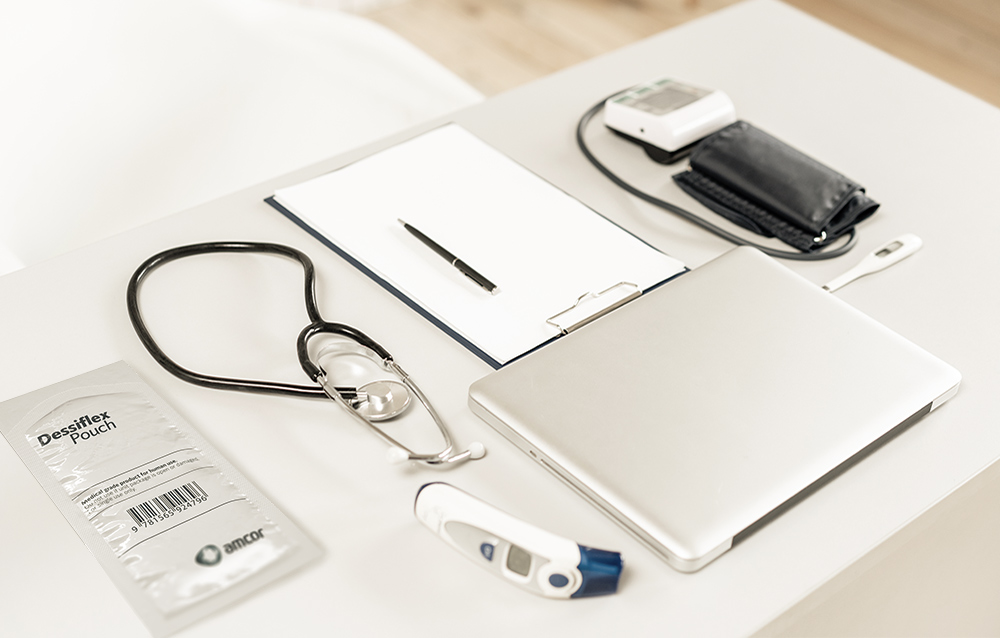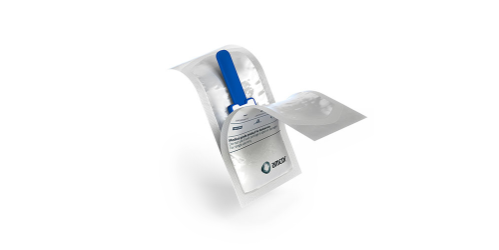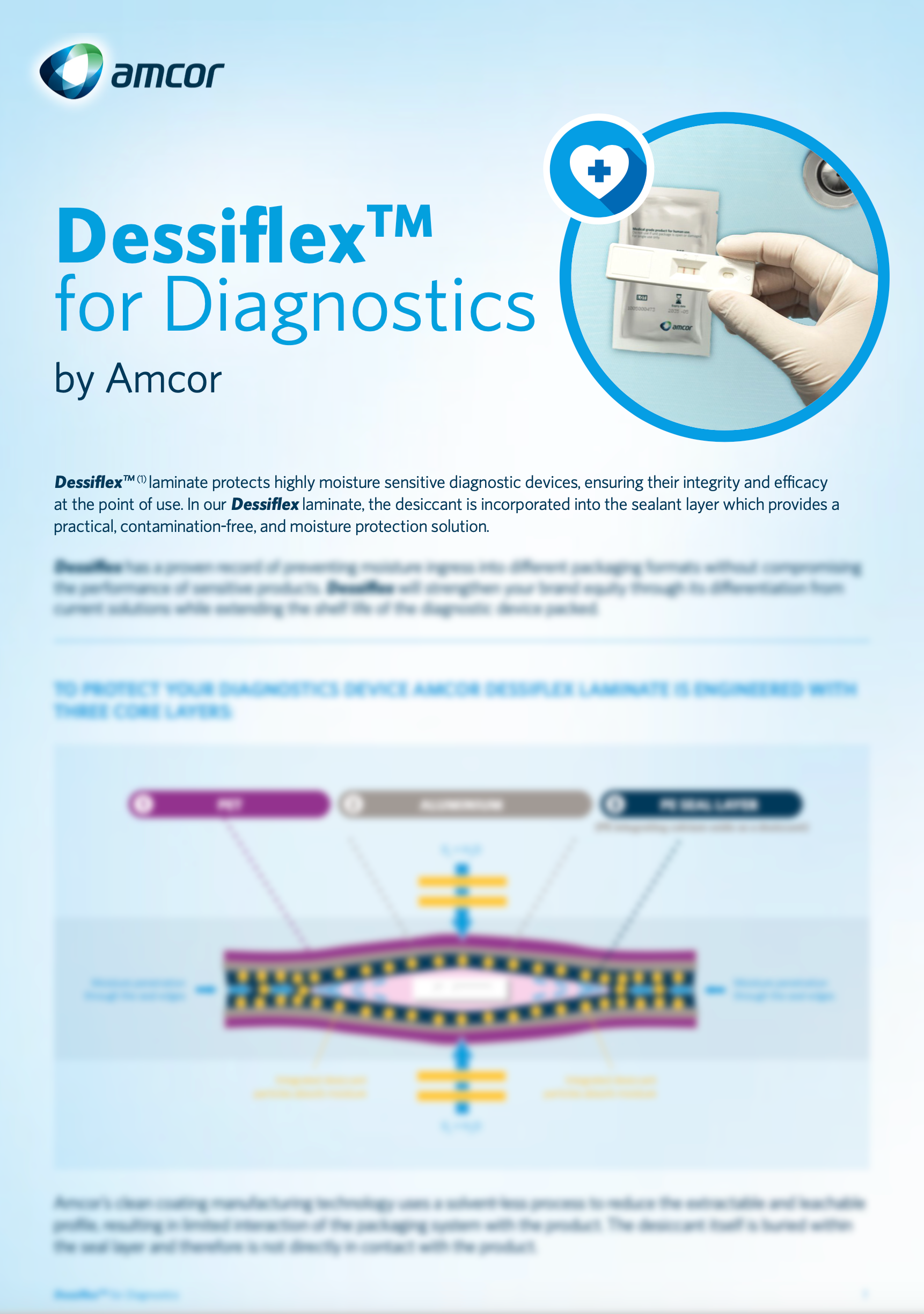Dessiflex®: innovative medical packaging for diagnostic applications
Innovation
October 21, 2021Reading time: 2 minutes
Discover how Dessiflex technology is shifting diagnostics packaging in a fast-changing market, how this perfect medical packaging protects sensitive IVD tests whilst extending shelf life, increasing sustainability and reducing costs.
Discover how Dessiflex technology is shifting diagnostics packaging in a fast-changing market, how this perfect medical packaging protects sensitive IVD tests whilst extending shelf life, increasing sustainability and reducing costs.

The healthcare industry is constantly under pressure to provide products that are not only necessary for the welfare of the population, but that also respond to the latest clinical advances. Technology, automation and the drive for personalized care is reshaping the diagnostics space. Medical care has shifted its focus towards rapid early detection and prompt treatment to improve outcomes and control healthcare costs. The demand for point-of-care (POC) testing is a key factor in the proliferation of In-Vitro Diagnostic (IVDs) devices. IVDs can help speed up diagnosis allowing healthcare providers to make faster and better decisions, preventing the spread of infectious diseases and mitigating unnecessary procedures.
IVDs are highly sensitive to their environment and moisture is often the biggest challenge to the functionality of the product. The packaging materials therefore play a critical role to ensure the safety and performance of the device at the point of use. The latest innovation from Amcor directly responds to this growing customer need.
The patented Dessiflex® technology was initially designed to protect moisture-sensitive pharmaceuticals that needed to be kept in extremely dry conditions, ensuring that their quality and efficacy were not compromised. This unique technology is now being used to make further improvements in the protection and usability of IVD and POC test devices.
Dessiflex eliminates the need for additional moisture scavengers
Many IVD products require both high barrier packaging and a desiccant sachet to ensure shelf life. The inclusion of a desiccant sachet alongside the device can affect usability.
Through our patented Dessiflex® laminate, we have incorporated the desiccant into the packaging’s sealant layer, which means we can now provide a practical, contamination-free moisture protection solution for our customers.
This desiccant sealant layer eliminates the need to include separate desiccants or moisture scavengers, which are usually in the form of dry clay, contained in non-woven sachets. This simplifies the packaging process as there are fewer components to pack and reduces the risk of contamination when opening a Dessiflex® package in a sterile environment.

Improved productivity and increased safety
Dessiflex® uses a chemical desiccant combined with an aluminum layer that protects products against humidity, gas and UV. Unlike other desiccants, Dessiflex will not release moisture back into the packing even under the harshest conditions, such as high temperatures or high altitudes.
Removing the need to physically insert a desiccant sachet is where customers see the real benefit. This effectively eliminates a whole step of the production process, reduces complexity and inventory as well as the need for the corresponding quality checks. The streamlined packaging also reduces the packaging’s environmental footprint by decreasing the pack size. Dessiflex® technology has enhanced sealing capabilities allowing for faster packaging speeds. The combined impact of these benefits facilitates a streamlined and more cost-efficient manufacturing process as well as a safer and easier to use device.
Dessiflex® is available now and is a proven technology used across a wide range of products within the healthcare industry, to protect and ensure the integrity of moisture sensitive devices and pharmaceuticals.
Click here to download our factsheet on Dessiflex for diagnostics.
We outline all the benefits of Dessiflex as well as provide detailed illustrations with comparison tables and data to help you to understand how you can better ensure the integrity of your devices and pharmaceuticals.

Find out more about our full heathcare packaging range here.
Would you like to stay up to date on the latest medical packaging trends? Sign up to receive regular information, invitations to webinars about sustainability, regulations and other current packaging topics.
Related Insights
Desiccant packaging Dessiflex® supports the delivery of COVID-19 tests
May 12, 2021
The COVID-19 pandemic created an unprecedented global health crisis. Millions have been affected as healthcare systems and professionals have faced newly uncovered challenges all around the world. Yet in response to these extraordinary and uncertain times, resilience, teamwork and entrepreneurship have come together to find innovative ways to care for, diagnose and better protect the world’s...
The COVID-19 pandemic created an unprecedented global health crisis. Millions have been affected as healthcare systems and professionals have faced newly uncovered challenges all around the world. Yet in response to these extraordinary and uncertain times, resilience, teamwork and entrepreneurship have come together to find innovative ways to care for, diagnose and better protect the world’s...
New advanced extrusion technology for medical devices
October 30, 2019
The all-new multi-layer cast extrusion technology produces film of up to 11-layers to create safe, durable and cost-efficient medical device packaging.
The all-new multi-layer cast extrusion technology produces film of up to 11-layers to create safe, durable and cost-efficient medical device packaging.
Meeting demand for syringe packaging to support COVID-19 vaccination
April 29, 2021
Many vaccines have now become available with vaccination programmes in place around the globe to combat COVID-19 and its variants. However, this means there are logistical challenges that need to be addressed when rolling-out programmes on such a large scale.
Many vaccines have now become available with vaccination programmes in place around the globe to combat COVID-19 and its variants. However, this means there are logistical challenges that need to be addressed when rolling-out programmes on such a large scale.
